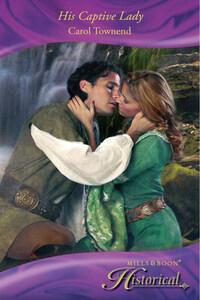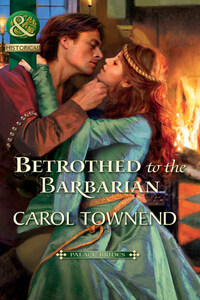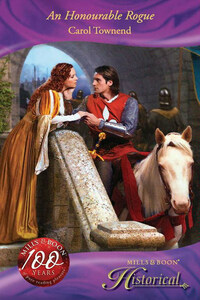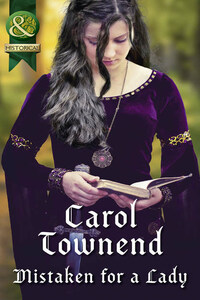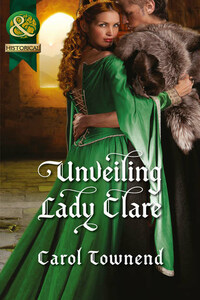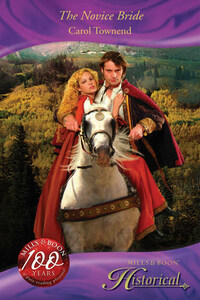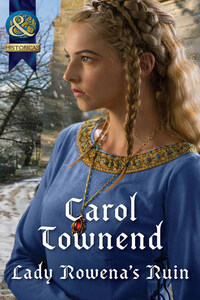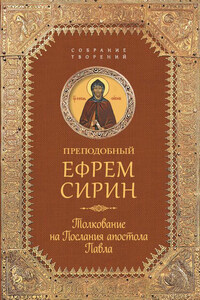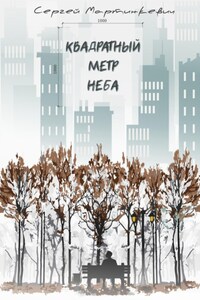âWe will save those for later.â
Later. Ericaâs breath froze. Later.
He faced her. Smiled. There was so little room that he was scarcely a foot away from her. He was very tall, this man to whom she had been given. His head almost touched the planked ceiling. Saewulf Braderâs skin was smooth and his eyes were clear. And he was, she realised with a start, examining her with equal attention. Convulsively, she swallowed.
âDo not fear me. You are safe,â he said softly.
âI⦠I thank you.â Absurdly, she believed him.
Strong muscles bunched and shifted under his tunic. Saewulf Brader was the image of health. Young men, healthy young men, were, in Ericaâs admittedly limited experience, not entirely reliable where women were concerned. Until today Erica had led a sheltered life. Her high status had protected her. Physically, at least. Physically, she was as chaste and innocent as a nun in an enclosed order.
Silently, she stared at Saewulf Braderâs broad back as he worked, and wondered what was running through his mind. Tonight he had been given a trophy. Her. Could she take him at his word? Could she trust him not to⦠touch her?
Carol Townend has been making up stories since she was a child. Whenever she comes across a tumbledown building, be it castle or cottage, she canât help conjuring up the lives of the people who once lived there. Her Yorkshire forebears were friendly with the Brontë sisters. Perhaps their influence lingersâ¦
Carolâs love of ancient and medieval history took her to London University, where she read History, and her first novel (published by Mills & Boon) won the Romantic Novelistsâ Associationâs New Writersâ Award. Currently she lives near Kew Gardens, with her husband and daughter. Visit her website at www.caroltownend.co. uk
Recent novels by the same author:
THE NOVICE BRIDE
AN HONOURABLE ROGUE
Praise for
CAROL TOWNEND
THE NOVICE BRIDE âTHE NOVICE BRIDE is sweet, tantalising, frustrating, seductively all-consuming, deliciously provocative⦠I canât go on enough about this storyâs virtues. Read this book. Youâll fall in love a hundred times over.â âRomance Junkies
âFrom the very first words, this story
snatches the reader from present day, willingly pulling hearts and minds back to the time of the Norman conquest. Culture clash, merciless invaders, innocence lost and freedom capturedâall wonderfully highlighted in this mesmerising novel.â âRomance Reader at Heart
AN HONOURABLE ROGUE âMs Townendâs impeccable attention to detail and lush, vivid images bring this time period to life.â âRomance Reader at Heart
âAnyone who wants to read a very satisfying and heartwarming
historical romance will not go wrong with AN HONOURABLE ROGUE by Carol Townend.â âCataRomance
In the eleventh century heraldry was in its infancyâ the devices of the various noble houses did not start to develop properly until the second quarter of the twelfth century. However, flags and pennons may be seen on the Bayeux Tapestry. They were used in the Battle of Hastings to convey signals as well as to reveal identity. Thane Eric of Whitecliffeâs battle pennon is similar to these.
Many thanks are due to my editor, Joanne, for herthoughtful (and always tactfully phrased!) suggestions.She is worth her weight in gold.
Chapter One
WestminsterâDecember 1067
Captain Wulf FitzRobert sat waiting on a stool by the fire in the middle of King Williamâs cavernous new barrack-hall. Waiting, waiting. It was an exercise in patience, he told himself, but even so, he was unable to keep his keen blue eyes from straying to the top table where the great lords were in conference. He was hungry for his next commission.
The freshly whitewashed walls around him displayed a formidable array of shields and lances, which winked in the fitful candlelight. Thick beams arched above Wulfâs head, beams that had been cut so recently that he could smell sawn timbers, could see the marks of the adze. While Wulf kicked his heels and mastered his impatience, a troop of foot soldiers tramped in and headed for the wine jugs.
Glancing down at the worn brown tunic that stretched across his broad chest, at the shabby and barely serviceable grey hose that barely covered his long legs, Wulf noticed a rip in the weave and grimaced. His clothing needed to be replaced and he could ill afford it. Advancement, that was what he craved, more advancement.
Under the high table two wolfhoundsâa grey and a brindleâwere snarling over possession of a bone. Wulfâs mouth twisted. So it was with those lower in the ranks, he thought, lifting his gaze once again to the noblemen and commanders clustered around the board; that is what we are reduced to, fighting over scraps dropped by those above.
Parchments were scattered across the tabletopâaps, most likely. Wulf knew what the lords were about: they were busy slicing up lands won in the recent conflict. Estates that had once belonged to Saxon noblemen were being parcelled out among King Williamâs most loyal supporters. Campaigns for suppressing rebellion were being planned; offers were being made for the most wealthy of the Saxon widows and heiresses.
